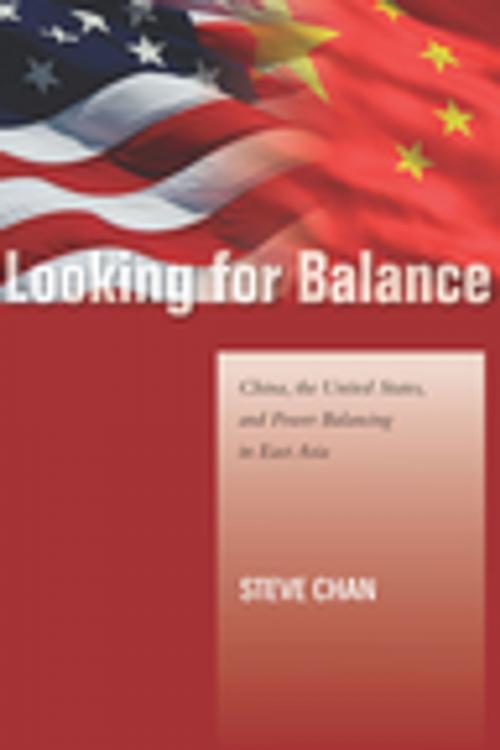Looking for Balance
China, the United States, and Power Balancing in East Asia
Nonfiction, Social & Cultural Studies, Political Science, International, International Security| Author: | Steve Chan | ISBN: | 9780804778473 |
| Publisher: | Stanford University Press | Publication: | July 15, 2013 |
| Imprint: | Stanford University Press | Language: | English |
| Author: | Steve Chan |
| ISBN: | 9780804778473 |
| Publisher: | Stanford University Press |
| Publication: | July 15, 2013 |
| Imprint: | Stanford University Press |
| Language: | English |
Debate surrounding "China's rise," and the prospects of its possible challenge to America's preeminence, has focused on two questions: whether the United States should "contain" or "engage" China; and whether the rise of Chinese power has inclined other East Asian states to "balance" against Beijing by alignment with the United States or ramping up their military expenditures. By drawing on alternative theoretic approaches—most especially "balance-of-threat" theory, political economic theory, and theories of regime survival and economic interdependence, Steve Chan is able to create an explanation of regional developments that differs widely from the traditional "strategic vision" of national interest. He concludes that China's primary aim is not to match U.S. military might or the foreign policy influence that flows from that power, and that its neighbors are not balancing against its rising power because, in today's guns-versus-butter fiscal reality, balancing policies would entail forfeiting possible gains that can accrue from cooperation, economic growth, and the application of GDP to nonmilitary ends. Instead, most East Asian countries have collectively pivoted to a strategy of elite legitimacy and regime survival based on economic performance.
Debate surrounding "China's rise," and the prospects of its possible challenge to America's preeminence, has focused on two questions: whether the United States should "contain" or "engage" China; and whether the rise of Chinese power has inclined other East Asian states to "balance" against Beijing by alignment with the United States or ramping up their military expenditures. By drawing on alternative theoretic approaches—most especially "balance-of-threat" theory, political economic theory, and theories of regime survival and economic interdependence, Steve Chan is able to create an explanation of regional developments that differs widely from the traditional "strategic vision" of national interest. He concludes that China's primary aim is not to match U.S. military might or the foreign policy influence that flows from that power, and that its neighbors are not balancing against its rising power because, in today's guns-versus-butter fiscal reality, balancing policies would entail forfeiting possible gains that can accrue from cooperation, economic growth, and the application of GDP to nonmilitary ends. Instead, most East Asian countries have collectively pivoted to a strategy of elite legitimacy and regime survival based on economic performance.















